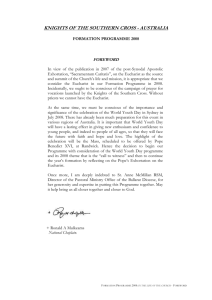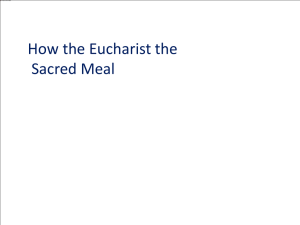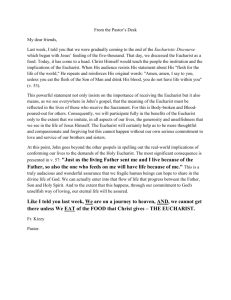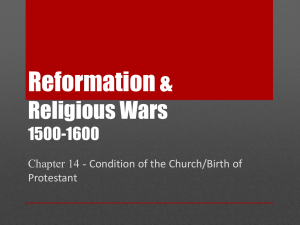Marburg Colloquy
advertisement
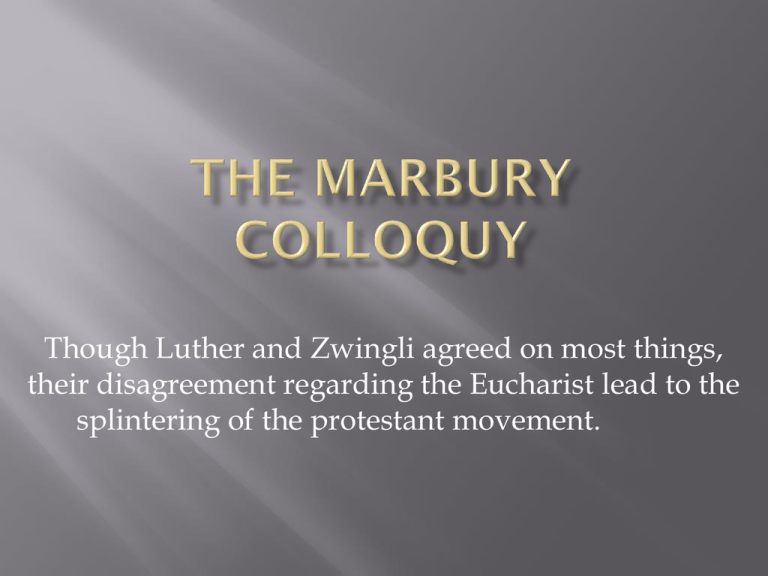
Though Luther and Zwingli agreed on most things, their disagreement regarding the Eucharist lead to the splintering of the protestant movement. Martin Luther, German monk and Ulrich Zwingli, Swiss Erasmian humanist, were initially the two important Protestant thinkers. Both insisted on “sola scriptura” and attacked indulgences, monasticism, clerical celibacy, and the Mass. Both argued that only faith, and not faith combined with good works, determined salvation, and that each individual must interpret the Bible for himself. Both argued that there were only two sacraments – baptism and the Eucharist The church is not a clerical, hierarchical institution with the pope as its head but the community of believers, all whom are equal in status before God whether commoner or cleric. Protestants rejected clerical celibacy and in fact promoted the value of marriage. Catholics believe in the doctrine of transubstantiation, the actual transformation of the wine and wafer into the blood and body of Christ. Luther believed in the doctrine of the Real Presence, which holds that Jesus is present in the wine and wafer during the Eucharist but this presence is not physical. Luther's concept is known as the doctrine of consubstantiation. Zwingli argued that the Eucharist was only a memorial. The Eucharist was a divisive issue among Protestants.

